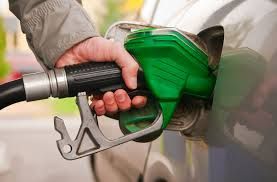
Big petrol price cut building in South Africa for September: economist
With economists and analysts predicting a lower fuel price in September and a tapering off of food inflation in the coming months, Investec chief economist Annabel Bishop says that there is currently the potential for slightly lower inflation this year than previously expected.
In a market note this week, Bishop said that food price inflation has continued to move lower in the country, driven largely by grains, which is still expected to exert some downward pressure on both purchasing price and consumer price inflation in the coming quarters.
“Falling food and energy prices since the end of Q2.22 have contributed to a moderation in commodity prices overall on the month, with gasoline prices down 15.2% and Brent crude oil 12.8%,” she said.
A large petrol (R2.72/litre) and diesel (R2.48/litre) price cut is building for the country in September, she noted, with the latest data from the Central Energy Fund showing an over-recovery supported by both a stronger rand and lower international petroleum costs.
“With the fuel prices adjusted on the first Wednesday of the month, this will place subduing pressure on the CPI inflation rate next month. However, in July, the state did not pass the full amount of the over-recovery through, only delivering around half, which remains a risk,” she added.
Bishop said that fuel prices could be flat to slightly lower in the third quarter of the year compared to the second, depending on the actual price changes at the pump, as fuel prices in South Africa remain state-administered prices.
To date, August and July’s drop in petroleum product prices have overshadowed rand weakness.
“However, it should be noted that fuel prices are still higher compared to a year ago, which will support inflation to some extent as the headline measure is based on year-on-year changes, and so a collapse in inflation is not likely, just a moderation over H2.22,” Bishop said.
The petrol price is running at R25.42/litre in August and the diesel price at R24.52/litre, versus R18.30/litre and R15.64/litre in the respective months in 2021.
As a result, transport costs are up 20% y/y in South Africa, with fuel costs 45.3% y/y higher than a year ago. Food price inflation is 9.0% y/y (July).
Bishop said that third-quarter numbers are expected to begin to see some moderation in inflation but warned that price pressures have become broad-based.
“Higher fuel costs have pushed up transport, and so production, costs generally, while retailers have also faced higher input costs, with salary and wage increases rising as inflation has, contributing to wider price pressures, which will slow the drop in inflation,” she said.
However, lower international gasoline prices – if sustained – will have an impact on the likely outcome for South Africa’s overall inflation rate for 2022, potentially moving it towards 6.6% y/y from a previous expectation of 6.9% y/y, if September sees the large fuel prices currently scheduled.
News Category
- International retailers
- On the move
- Awards and achievements
- Legislation
- Wine and liquor
- Africa
- Going green
- Supplier news
- Research tools
- Retailer trading results
- Supply chain
- Innovation and technology
- Economic factors
- Crime and security
- Store Openings
- Marketing and Promotions
- Social Responsibility
- Brand Press Office
Related Articles

Empowering South African households through gro...

SPAR shares practical tips to beat food inflation

South African motorists could be paying up to R...

Big VAT changes on the cards


